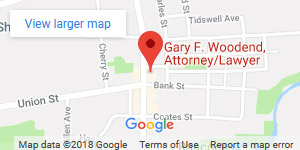We like well informed clients! The more you know, the better we can represent you!
We are uniquely qualified to handle Estates with real estate to be sold.
Intestate Succession (dying without a Will)
Almost one-third of New Jersey residents die without a Will. With or without a Will, the estate of every New Jersey resident must be settled with the County Surrogate unless the deceased owned no assets in his or her name alone. Except in those limited circumstances or unless all property is owned as Joint Tenants with Rights of Survorship, an estate must be processed through to the County Surrogate before transfer and disbursement of the deceased’s assets can occur. This estate settlement process, called Probate, applies whether the person died with or without a Will.
The estate of a person who dies without a Will is called an “intestate” estate. Whoever is to take charge of the assets of an intestate estate must appear at the County Surrogate’s Office and make application to be designated as the estate’s “Administrator”. Those who are first entitled to be appointed the administrator are the closest surviving next of kin. The Administrator’s responsibilities include gathering up the estate’s assets, paying any outstanding debts of the deceased from those assets and disbursing those remaining funds or assets according to law.
To apply to be the Administrator of an intestate estate, we would prepare certain documents ahead of time. You would then take the documents we prepared to the County Surrogate’s Office, as well as: (1) The original death certificate with a raised seal, (2) An estimate of the value of the estate, including real estate, personal items, (3) The names and addresses of the deceased’s next of kin, (4) A check or cash for fees which average $150-$200, and (5) The signed and notarized Renunciation Forms we prepared for you, signed by every person who has prior or equal right to the applicant to serve as the estate’s Administrator. In other words, the next of kin.
As a matter of law, the family members of the deceased have the first right to serve as the Administrator, in the following order of preference: spouse, surviving partner if a civil union, children, grandchildren, parents, brothers, sisters, then nieces and nephews. Should no family member seek appointment, then a creditor or any interested party may apply. A person who renounces the right to serve as Administrator may do so without disclaiming the right to receive any of the deceased’s assets. In contrast, by having a Will, a person chooses the individual(s) (i.e., “Executor(s)”) he or she wishes to take charge and distribute his or her estate’s assets.
Once the above described items have been received, the County Surrogate will appoint the applicant as the Administrator of the intestate estate. In most cases, the Administrator must be bonded until the estate has been properly assembled and distributed. This bonding fee is in addition to the fees paid by the person seeking to be appointed as Administrator. Bonding is required to protect the creditors and beneficiaries of the estate from the possibility that the Administrator will misuse his or her authority to their financial detriment. A typical bond will cost between $750 and $1,500. This is a BIG advantage to having a Will because with a properly drafted Will, no bond is required.
After the Administrator has been appointed and bonded, the Surrogate’s Court will then issue Short Certificates (also known as Letters of Administration) that are used to assemble and transfer the intestate estate’s assets. It is recommended that you order several extra copies of these Certificates, especially if assets are held at several banks, brokerage firms, with insurance companies and/or are pension plans. The Short Certificates will also be needed to sell or transfer motor vehicles and real estate.
If an individual dies without a Will, the laws of the State of New Jersey provide for the distribution of property to the heirs by “Intestate Succession.” Most people assume that the surviving spouse inherits the entire estate, but this is not necessarily so.
1. If an individual dies leaving a spouse and children, who are also the children of the surviving spouse, the surviving spouse receives the entire estate.
2. If an individual dies leaving a spouse and children, but the children are not the children of the surviving spouse, the surviving spouse receives the first 25% (not less than the first $50,000 nor more than $200,000) plus of the balance. The rest goes to the children.
3. If an individual dies leaving children but no spouse, the children receive the entire estate divided equally among them. If there are grandchildren, they take their deceased parent’s share by representation. If all the children are deceased, then the grandchildren share equally in the estate.
4. If an individual dies leaving a spouse, mother and/or father, but no children, the surviving spouse receives only the first 25% (but not less than the first $50,000 nor more than $200,000 ) plus 75% of the balance. The rest goes to the parents.
5. If an individual dies leaving no spouse and no children and that individual’s parents survive, the parents inherit the entire estate. If no parent survives, then to the brothers and sisters in equal amounts of the entire estate.
Waiver of Administration
For especially small estates, (assets $20,000 or less for Surviving Spouse; $10,000 or less for Next of Kin) you may able to avoid the formal Administration process and the paying of fees and bond premium by making an Application for a Waiver of Administration. If this Application is approved, then Letters of Administration are not issued, and no Administration fee is charged and no bond is required. In order to be eligible for this Waiver, the intestate estate must be valued at $20,000 or less (if the surviving spouse is making the application for Waiver) or $10,000 or less (if any other next of kin is making the application for Waiver). If the Waiver of Administration is granted, then, instead of Letters of Administration being issued, an Affidavit of Surviving Spouse (or Next of Kin, as the case may be) is issued.
Guardians for Minors
If a New Jersey resident dies leaving a child under 18 years of age and there is no surviving parent nor other legal guardian for that child, then the County Surrogate must appoint that minor child’s guardian. The procedure for this appointment is similar to the application and bonding process for an Administrator in the sense that the law gives certain family members priority to serve as guardian of the deceased’s minor child, while allowing those lower on the priority ladder to serve as long as the appropriate written renunciations have been received by the Surrogate. In contrast, if the person who died had a Will, the deceased could have designated the guardian(s) of his/her minor child in the Will and this designation will be binding upon the Surrogate and all others.




